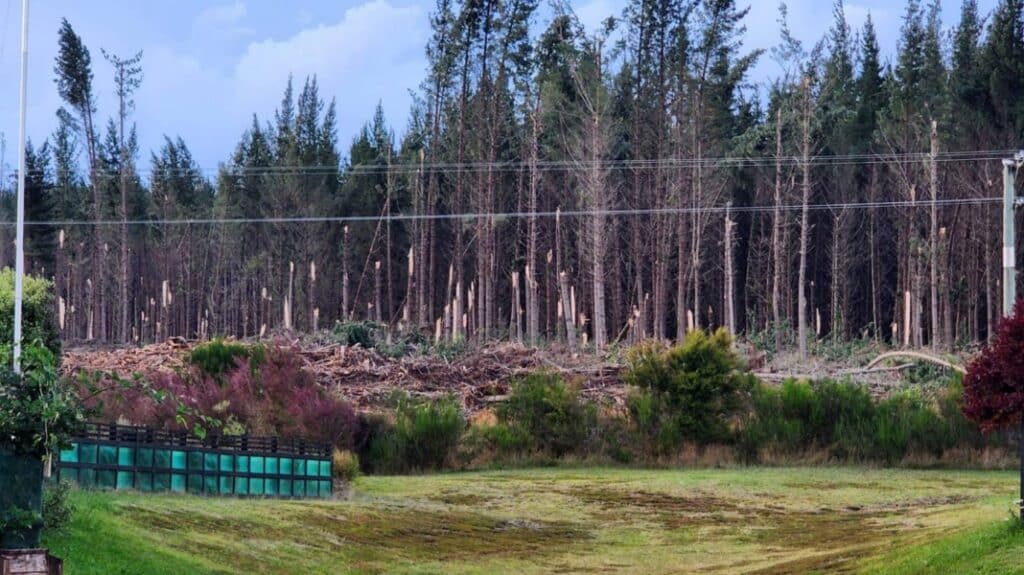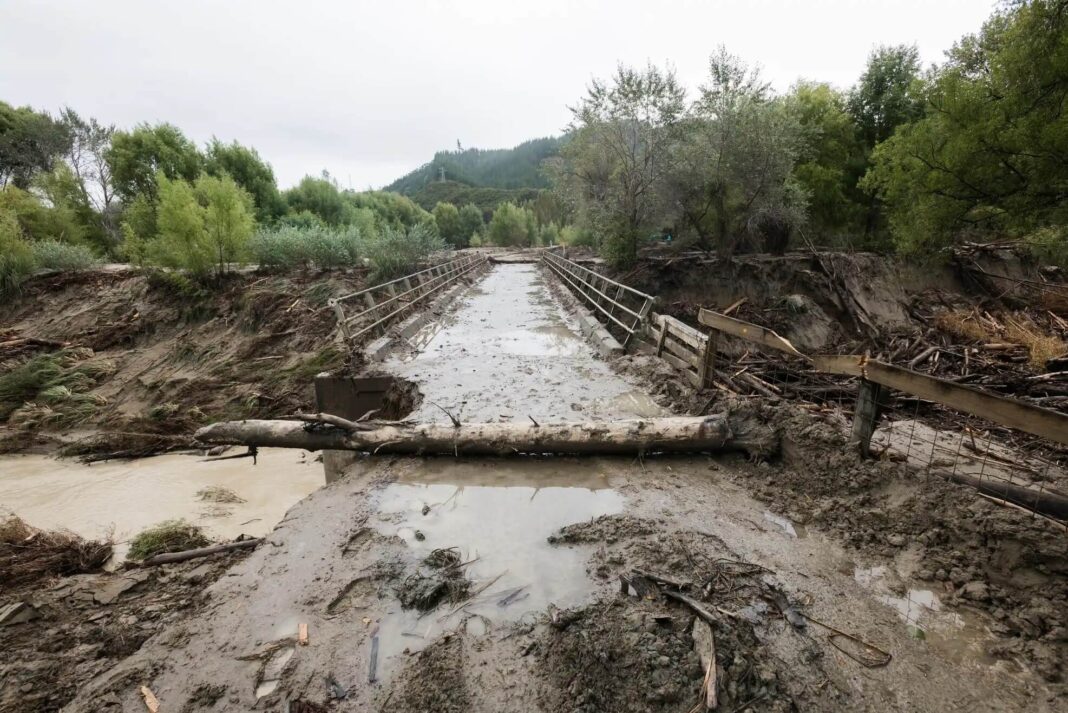The forestry sector in New Zealand stands at a critical crossroads, reevaluating its practices in the wake of Cyclone Gabrielle. A government report titled “Outrage to Optimism,” led by ex-National Cabinet Minister Hekia Parata and collaborators Matthew McCloy and Dave Brash, advocates a temporary cessation of large-scale logging.
It urgently demands an immediate end to extensive felling across New Zealand, focusing on the damaging aftermath of forestry slash — the leftover woody debris from logging.
The report, published on March 12, 2023, underlines a concerning situation that requires governmental attention within the next five to ten years. It draws attention to an environmental crisis in the making. Woody debris and sediment, beyond the local community’s capacity to manage, threaten lives and livelihoods. Ngāti Porou, a local community, is on the brink of becoming “homeless and landless.”
Even though the report acknowledges that more than half of soil sediment is caused by pastoral farming, it emphasises the need for strict action due to the forestry sector’s environmental footprint on soil erosion and water quality. A source from the report states, “There is a need to reassess how we manage our forests in the wake of growing climate concerns. We can’t afford to ignore the repercussions anymore.”
The cyclone left the forestry sector in the Tai Rāwhiti region grappling with extensive damage and financial implications for industry workers. Yet, despite these adversities, the locals exhibit a sense of resilience and a forward-looking approach. The report’s recommendations and findings provide hope for a brighter future for the sector and the affected communities.

Peeni Henare, the NZ Forestry Minister, addressed the impact of the forestry sector on the region. Reported in yesterday’s NZ Herald, he recognised that forestry had been a significant source of income for many locals but also stressed the need to evaluate the sector’s future in the region, especially in the light of the recent cyclone’s impact.
He said, “That is a balance that we are going to have to come up with, but the locals have made it quite clear that they are looking towards other opportunities, and we’ve got to look at what those opportunities might be.”
NZ Forest Owners Association responds to report
In response to these concerns, Grant Dobson, the NZ Forest Owners Association (NZFOA) President, released a statement on Sunday, 14th of May 2023. The NZFOA reviews the recommendations and will release more comprehensive information in the coming days.
In a radio interview with RNZ yesterday, Dobson admitted that the social acceptance of forestry in Tairāwhiti had taken a hit, but practices had improved “dramatically” since 2018. However, despite these improvements, the impacts of Cyclone Gabrielle were unavoidable.
The slash problem has been a century in the making and requires a “significant amount of work,” Dobson said. But, he added, “That disaster started 100 years ago when the native trees were cleared off that land, and ever since then, we’ve been chasing our tail with farming eroding into the sea, forestry washing down, water supplies damaged, roads damaged, bridges damaged, sedimentation… it’s been going on for a long time, and you’re quite right; time is running out. Climate change is making it worse.”
Dobson praised the commission for their work over the last three months but cautioned, “It is going to take a lot longer than that to actually implement things and solve the problem.”
The inquiry has recommended several strategies that could significantly enhance the region’s resilience. However, the collective implementation may have some implications. One such recommendation proposes a more strategic approach to felling by harvesting smaller areas of forests at a time. Dobson expressed mixed feelings about this, as it could considerably reduce the sustainable cut from the region.
The proposed regulation would limit cutting to only 5% of a catchment per year, turning it into a 20-year process to harvest entirely. Such a strategy, while sustainable, may impact the productivity and job market of the East Coast.
“We agree that things need to change, and we’re ready to be part of that change,” Dobson stated, indicating a willingness to adapt despite potential challenges.
These sentiments mirror the concerns raised in the report, underscoring the necessity for a sustainable approach to forestry.
Kerre Woodham, a popular host on Newstalk ZB, also shared her perspective on the issue. Woodham argued that New Zealand must balance preserving its forestry sector and implementing sustainable practices.
“Forestry is woven into our national fabric. The question is not about discarding it; rather, it’s about enhancing it,” she declared on her morning show. “We’ve got the brains, and we’ve got the resources. We need to put those into action and find a way to make forestry work for us, not against us,” she added.
The amalgamation of environmental concerns, the aftermath of Cyclone Gabrielle, and the necessity to maintain economic stability has positioned the forestry sector at a key turning point. With divergent views on the industry’s future, a balanced approach is required to ensure the sustainability of both the sector and the environment.
The call for change is clear as New Zealand navigates the repercussions of Cyclone Gabrielle and the issues outlined in the recent forestry report. However, the people of New Zealand are not just ready for change—they’re demanding it.
The sector’s future could witness a shift towards more sustainable practices that protect the environment while also providing job security for the people of New Zealand.
“There’s a lot to be learned from the cyclone and the devastation it brought to our forests,” said Henare. “We need to view this as a lesson and start working on creating a more resilient and sustainable sector that can withstand such challenges in the future.”
Woodham, too, emphasizes the need for balance and innovation. “New Zealand has always been a leader in many aspects, and there is no reason we can’t lead the way in sustainable forestry,” she stated. “Our country’s identity and economy are tied to forestry. It’s time we revolutionize the sector with better practices ensuring sustainability.”






